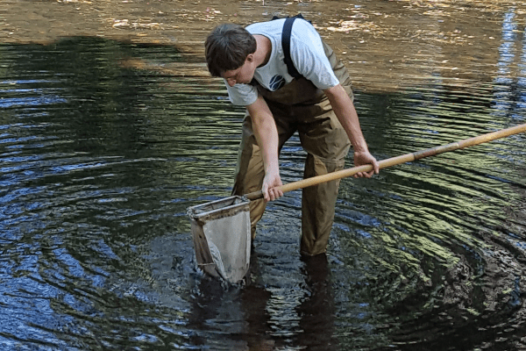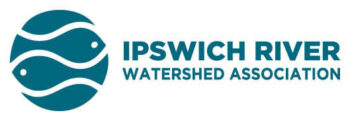MACROINVERTEBRATE MONITORING
Volunteers sample, sort and identify macroinvertebrates and the data are compiled into a comprehensive report at the end of each year. The data that volunteers collect is an incredibly valuable resource documenting the health of the river.

WHAT IS A MACROINVERTEBRATE?
Benthic macroinvertebrates is a biological term that means an organism without a backbone (invertebrate), that can be seen with the naked eye (macro), and lives on the river bed rather than in the water column (benthic). Benthic macroinvertebrates include insects such as larval damselflies, dragonflies, and midges, as well as crustaceans, mollusks, etc. that live in the streambeds of fresh water rivers like the Ipswich.
Macroinvertebrates, or “macros” for short, are an important part of the ecology of the Ipswich River. They can also be used as an indicator of water quality based on their preferences and tolerances. For example, certain macros such as mayfly larvae can only thrive in clean waters with relatively high dissolved oxygen. Therefore, the presence of mayfly larvae in a river segment is an indicator of excellent water quality. However, if that river segment only contained macros that can tolerate low dissolved oxygen (such as damselfly or midge larvae) we could conclude that the dissolved oxygen levels are too low to support a diverse range of macros.
HOW CAN I HELP?
We are always looking for new volunteers for this program. We are interested in volunteers who:
Have a willingness to commit to sampling several sites during the fall sampling season and assisting with specimen identification.
A long-term commitment is a plus.
Knowledge or experience with wading in streams, specimen collection and identification is a plus, but definitely not required! Training is provided.
To find out how to get involved in this program and for information of when these events take place, contact the Program Coordinator Ryan O’Donnell at [email protected]
